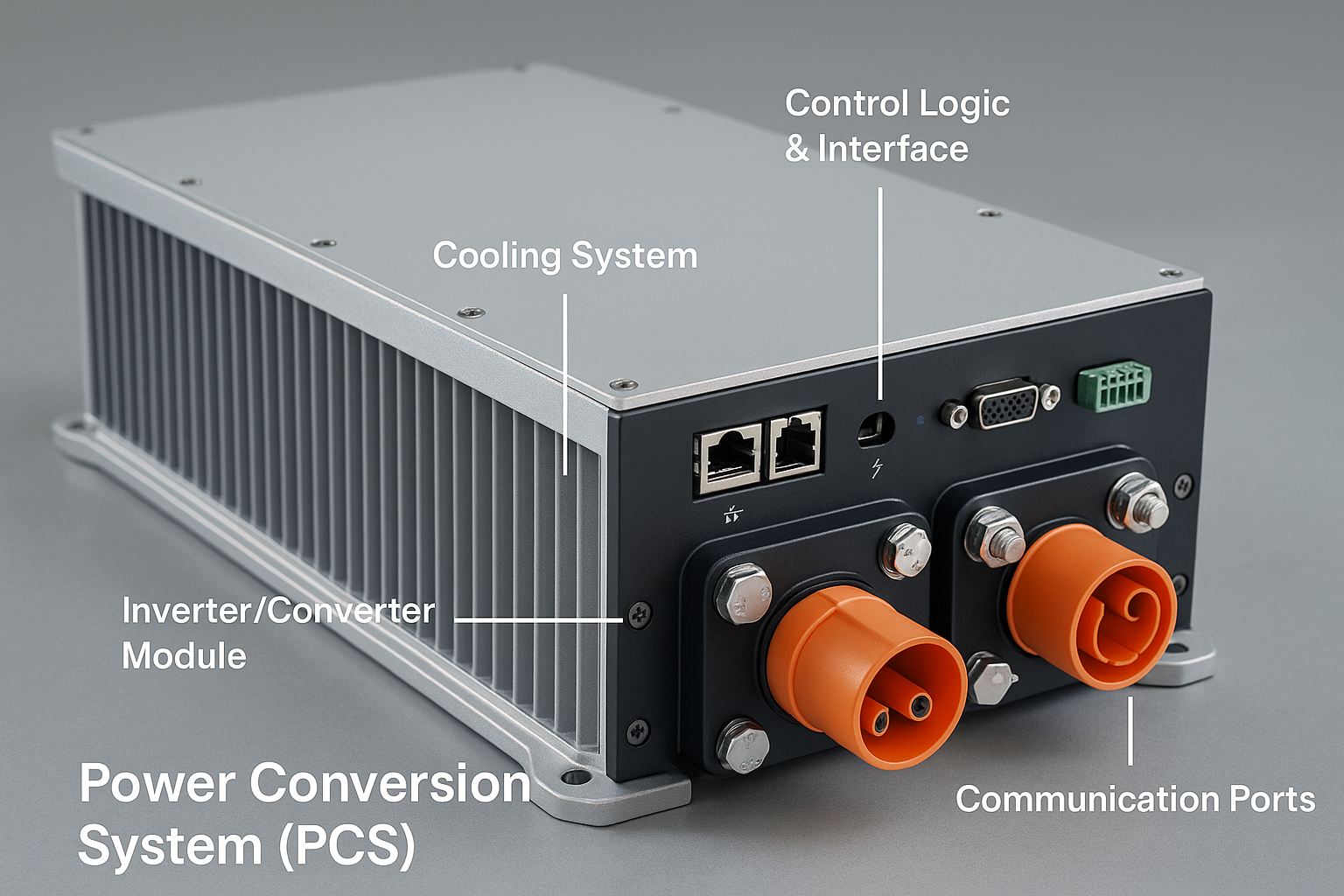Power Conversion System (PCS)

What is a Power Conversion System (PCS)?
A Power Conversion System (PCS) is an integrated electronic system that manages the conversion of electrical power between different forms , typically from AC (alternating current) to DC (direct current) and vice versa. PCS units play a central role in energy systems that involve batteries, renewable energy, EV chargers, and grid-tied storage.
PCS units are particularly crucial in Battery Energy Storage Systems (BESS) and EV charging hubs where they balance supply, demand, and grid compatibility.
Why PCS Matters
- Energy Flexibility: Supports diverse sources like solar, batteries, and grid
- Bidirectional Flow: Enables both charging and discharging from storage
- Grid Support: Stabilizes frequency, voltage, and power factor
- Smart Control: Works with RMS/CMS for load balancing and energy optimization
Key Functions of PCS
- AC-DC Conversion: For charging batteries from the grid or solar
- DC-AC Inversion: To return stored energy back to the AC grid (V2G)
- Voltage and Frequency Regulation: Maintains grid standards
- Power Quality Control: Reduces harmonics and balances loads
- Safety and Isolation: Protects both the grid and end-users
Components of a PCS
- Inverter/Converter Module: Core unit performing AC↔DC conversions
- Cooling System: Typically air or liquid cooled
- Control Logic & Interface: Monitors parameters and enables remote access
- Protection Systems: Includes surge, overcurrent, overvoltage protection
- Communication Ports: Often supports OCPP, Modbus, CAN, ISO 15118, etc.
PCS in EV and Energy Infrastructure
- EV Charging Stations: Provides bidirectional DC power flow for fast and V2G charging
- Battery Energy Storage Systems (BESS): Manages charge/discharge cycles
- Solar+Storage Systems: Optimizes solar energy utilization and grid export
- Microgrids: Balances local demand and supports grid islanding
Benefits
- High Efficiency: Converts power with minimal losses (often >97%)
- Real-Time Control: Supports dynamic load and demand response
- Compact Footprint: Suitable for containerized or urban installations
- Interoperability: Integrates with various hardware and communication protocols
Use Cases
- EV Fleet Charging Depots
- Commercial Battery Storage Facilities
- Smart Grid-Connected Solar Farms
- Industrial Load Management Systems




